BEST PRACTICE
Title of the Practice: SUCCEED – Sustainability Centric Crescent Education for Entrepreneurship Development
To bring a holistic transformational change within societies, economies and the environment through sustainable centric education.
To develop and implement a curriculum intended to be flexible and non-prescriptive that follows a competency development model through a combination of knowledge, skills, values and attitudes.
To enable the delivery of the SDGs by ensuring that each learner has the relevant skills, knowledge, values and attitudes for social, economic and environmental development, and to work in partnership to create peaceful societies.
To ensure that all learners acquire the knowledge and skills needed to promote sustainable development by 2030 through education for sustainable development and sustainable lifestyles, human rights, gender equality, promotion of a culture of peace and non-violence, global citizenship and appreciation of cultural diversity and culture’s contribution to sustainable development.
Education is one of the Sustainable Development Goals (SDGs) in itself and as a catalyst for broader change.
Education is critical in shaping individual and collective knowledge, skills, values and attitudes to enable people to move along pathways towards sustainable development, and a catalyst for development itself. It is a key determinant of social and economic transformation, and an essential precursor to peace, tolerance and sustainability. Moreover, it equips learners of all ages with the knowledge, skills, values and attitudes needed to be responsible global citizens, such as respect for human rights, gender equality and environmental sustainability.
The purpose of the SDGs centric education is to develop successful learners, confident individuals, and responsible citizens who are resilient and uphold the core values and principles of the nation.
The curriculum encompasses learning content and outcomes, and shifts learning from being only content-driven to being outcome-driven, action-oriented and participatory. The aim is that all learners can become engaged in promoting the transformation required for sustainable development.
The curriculum deals with the knowledge, skills, attitudes and values in relation to each of the SDGs and outlines:
1. The knowledge or content areas to be focused on, making provision for the inclusion of indigenous and traditional knowledge topics.
2. The skills to be developed.
3. The values and attitudes that are desirable for the successful accomplishment of the learning outcome.
At present, Core competencies required for sustainable development such as team building, communication, decision making, problem-solving, sense of community, self-esteem, personal responsibility, empathy, moral development, ethics, values, resilience and improved inclination for educational achievement are attained through few of the curricular courses and extension and outreach activities. Integrating the topic of the SDGs into a curriculum allows learners to understand their multiple identities, to work out what their roles should be for living together on a common planet and building a better future in an interdependent world at local, national and global levels.
The Crescent Innovation and Incubation Council (CIIC) encouraged the stakeholders (primarily the start-ups) to address the SDGs. As a result, our university’s faculty, students, and alumni created start-ups with the support of CIIC; 63 external start-ups, ten alumni start-ups, 14 faculty start-ups, and 26 student start-ups. Our university participated in the Times Higher Education (THE) Impact Ranking in 2020 and 2021 in the following SDGs: SDG 4: Quality Education, SDG 5: Gender Equity, SDG 6: Clean Water and Sanitation, SDG 7: Affordable and Clean Energy, SDG 9: Industry Innovation and Infrastructure and SDG 17: Partnership for the Goals. The rank bands are:
Our university participated in the following Green initiative award in 2019 and 2020.
Beema Bamboo is one of the fastest-growing plants on earth under tropical conditions. As a result, it will act as the best carbon sink for carbon-di-oxide emission, one of the major greenhouse gases that can be effectively and quickly brought down by the trees that grow fast by absorbing carbon-di-oxide. About 2000 Beema Bamboos were planted in the university campus during the last two years to reduce carbon footprint and help fight global warming. Our faculty members published quite a few papers in high-quality research journals addressing the SDGs. Complete compulsory courses relevant to the environment, ethics, human values and sustainability were introduced in the curriculum. In addition, about 10% of elective courses addressing the SDGs are offered to the students.
The development of the curriculum involved the identification and description of the competencies that learners should acquire, with an emphasis on the results of learning. In the context of the sustainability centric curriculum, the following was sought: a set of integrated competencies derived from the core competencies that learners need to develop for active and responsible participation in all relevant fields of life and to implement the SDGs, including empathy, ethics, compassionate values, and the ability to express social and environmental concerns and change behaviours. Integrated competencies and learning outcomes, specified in three categories – knowledge, skills, and values and attitudes, are adopted from “A Curriculum Framework for the Sustainable Development Goals – First Edition, Commonwealth, 2017” and “Education for Sustainable Development – Learning Objectives, UNESCO, 2017”.
SDG 2:
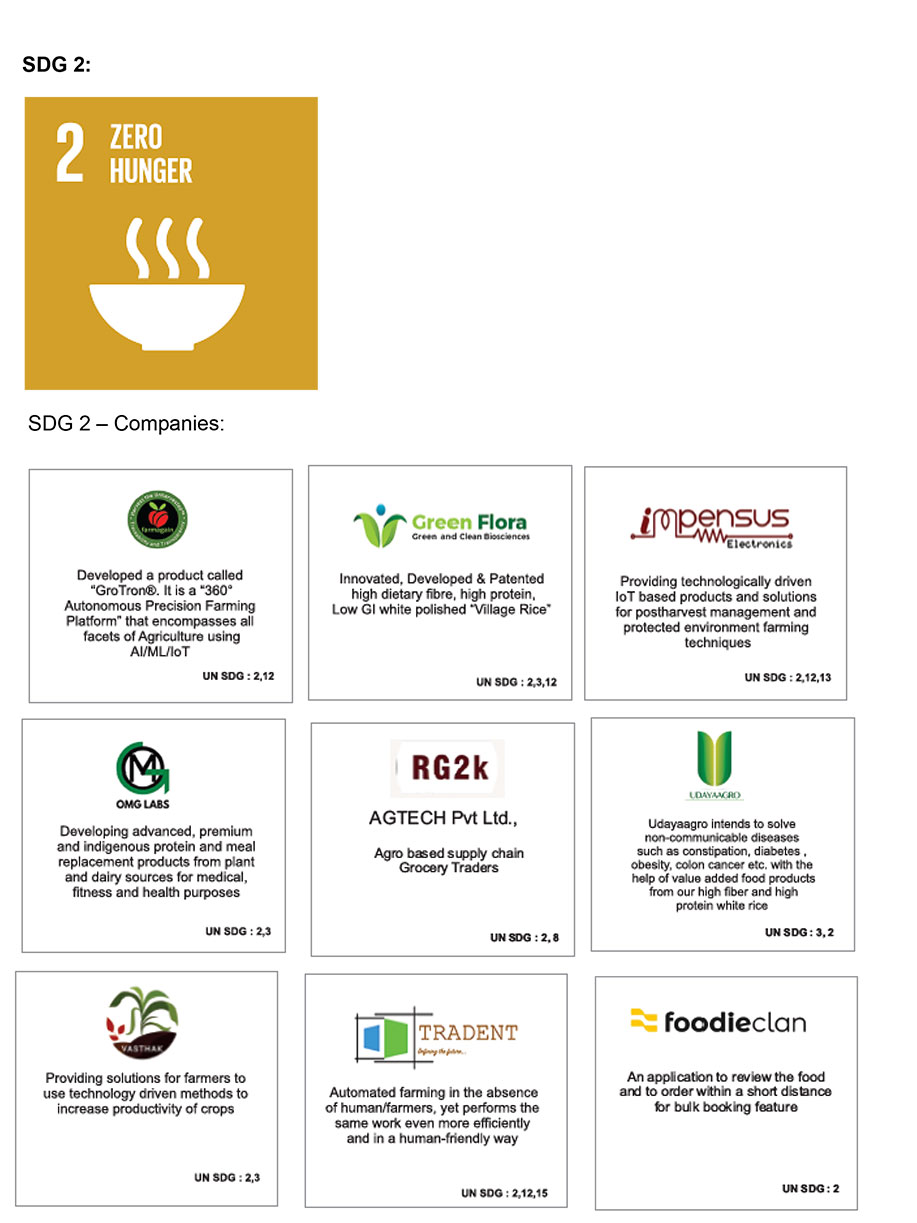
SDG 3:
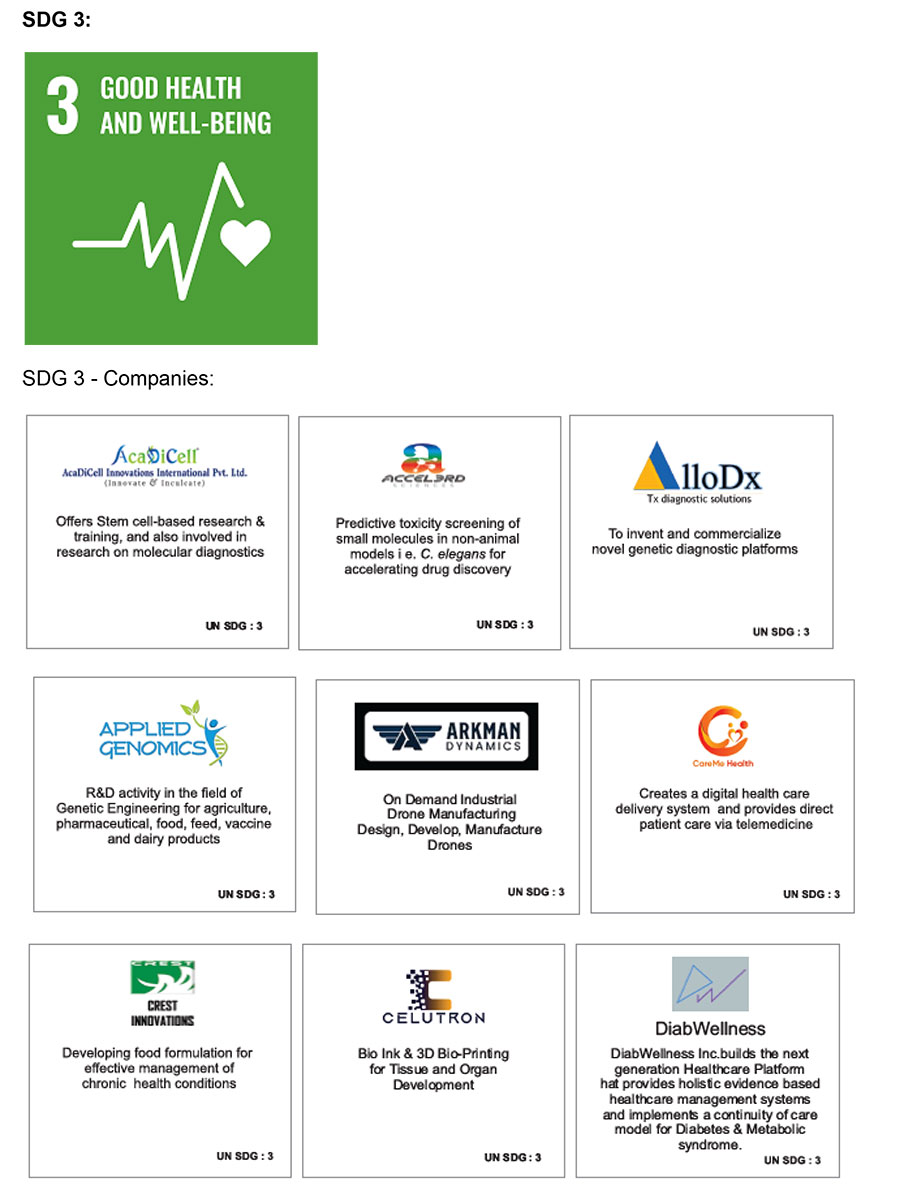
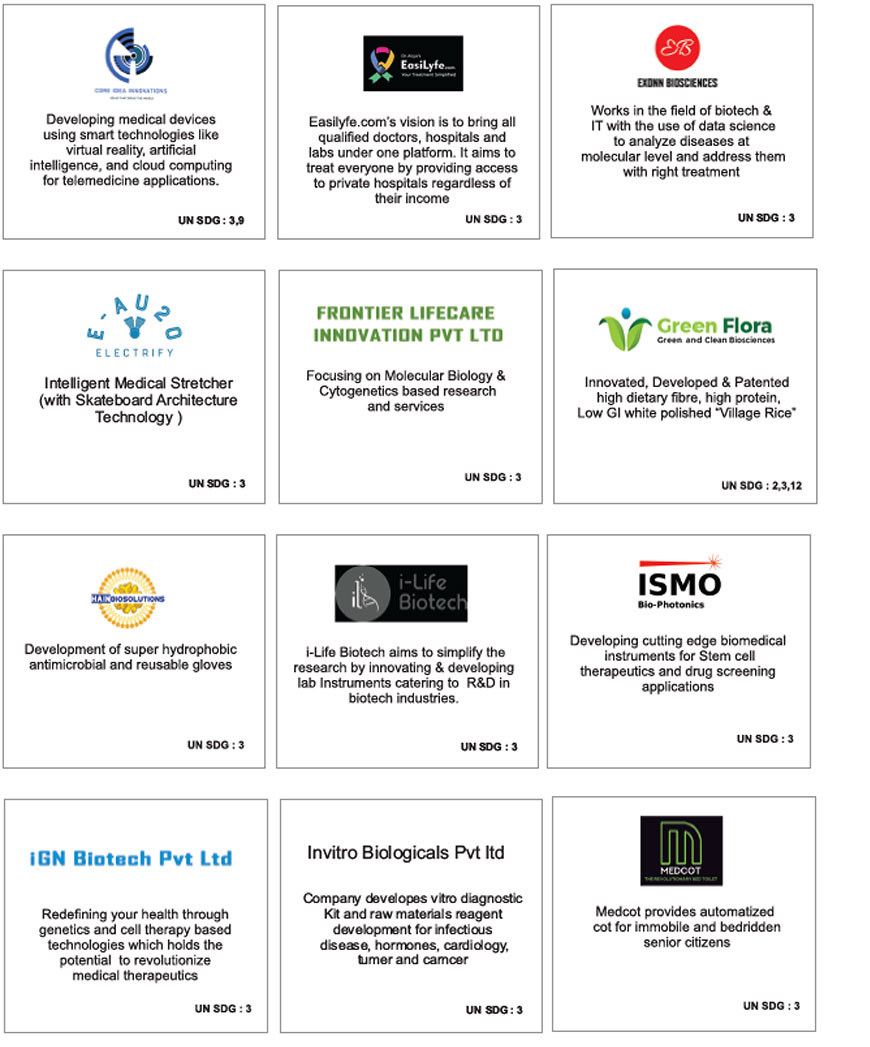
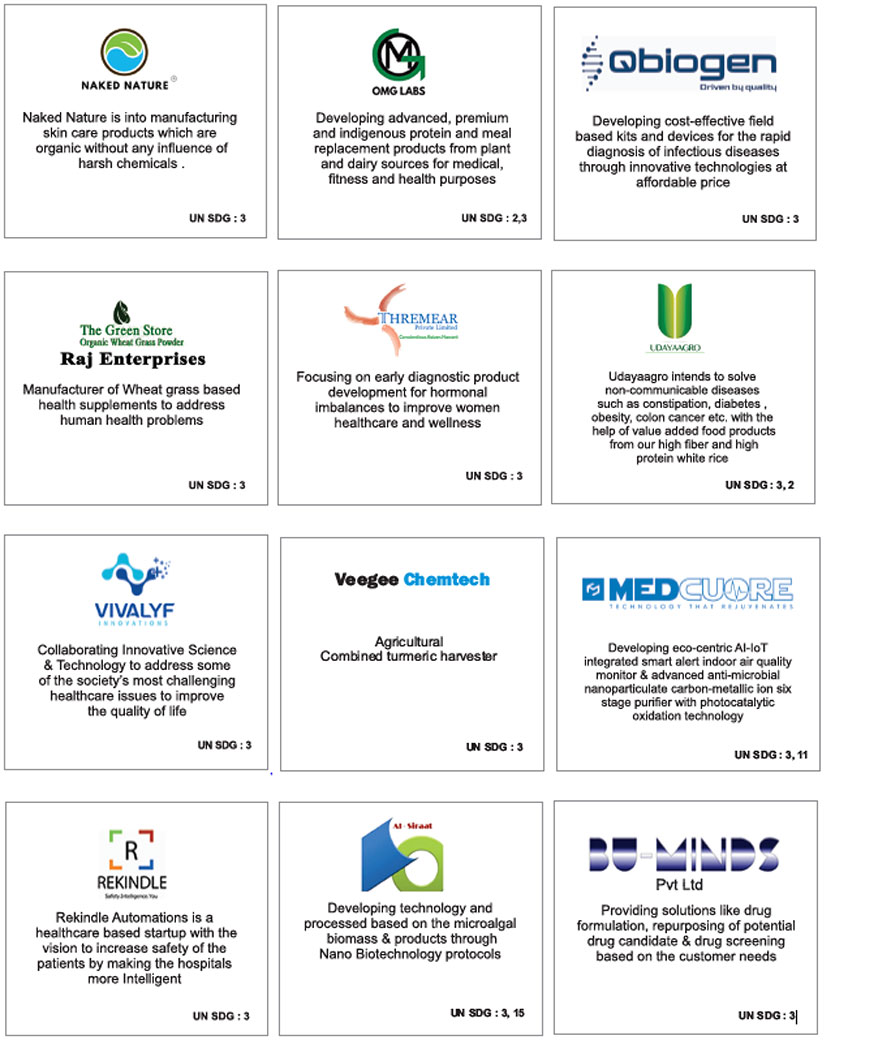
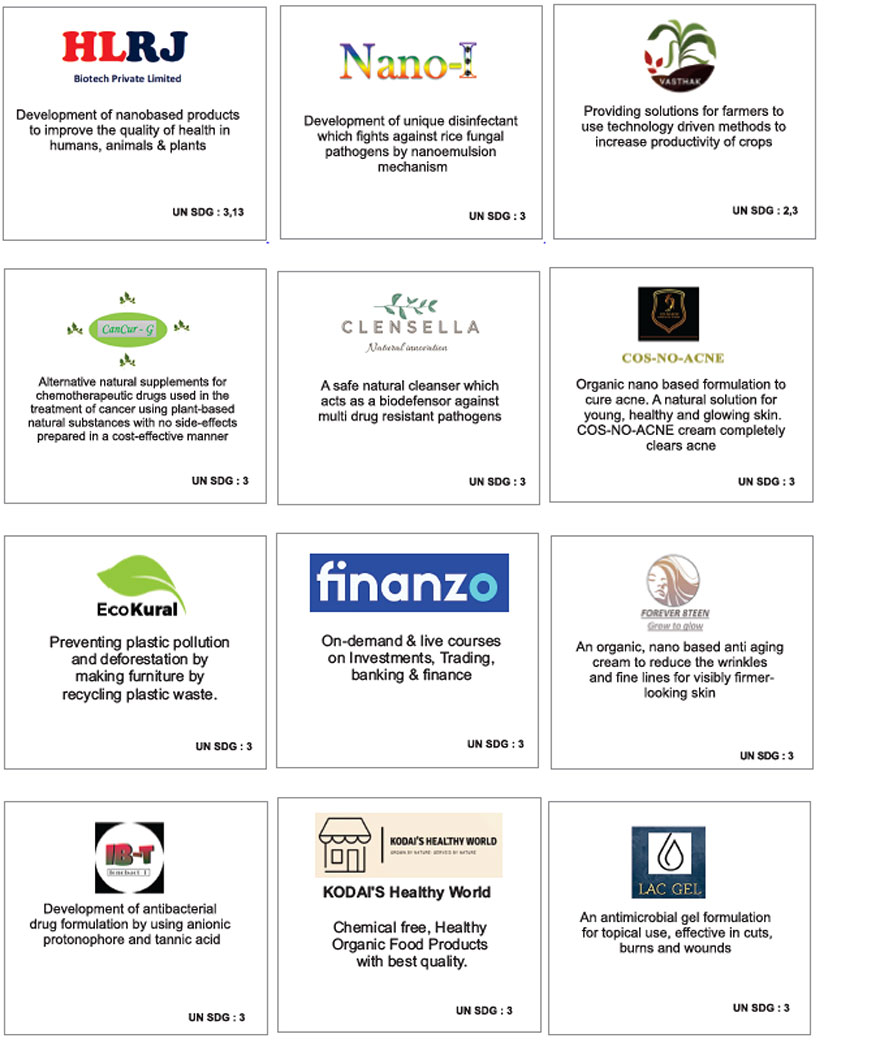
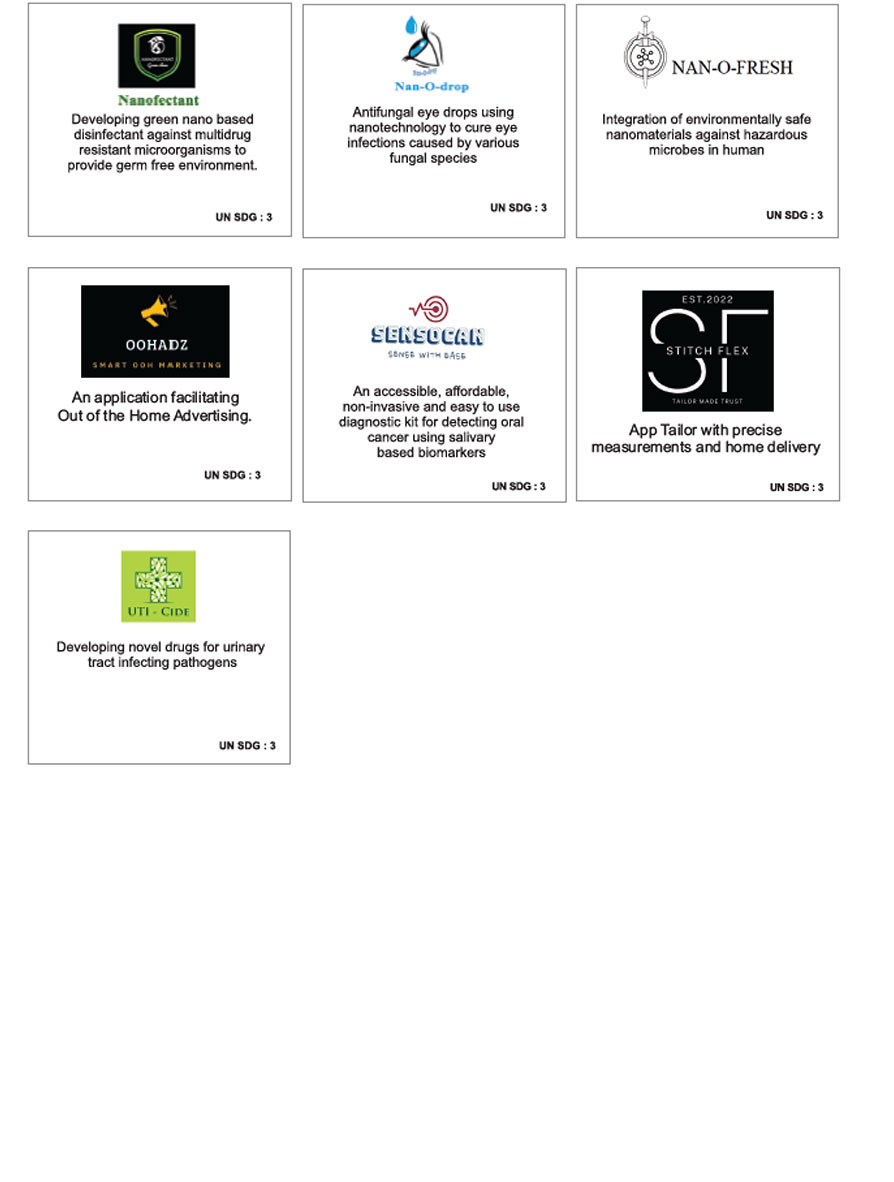
SDG 4:
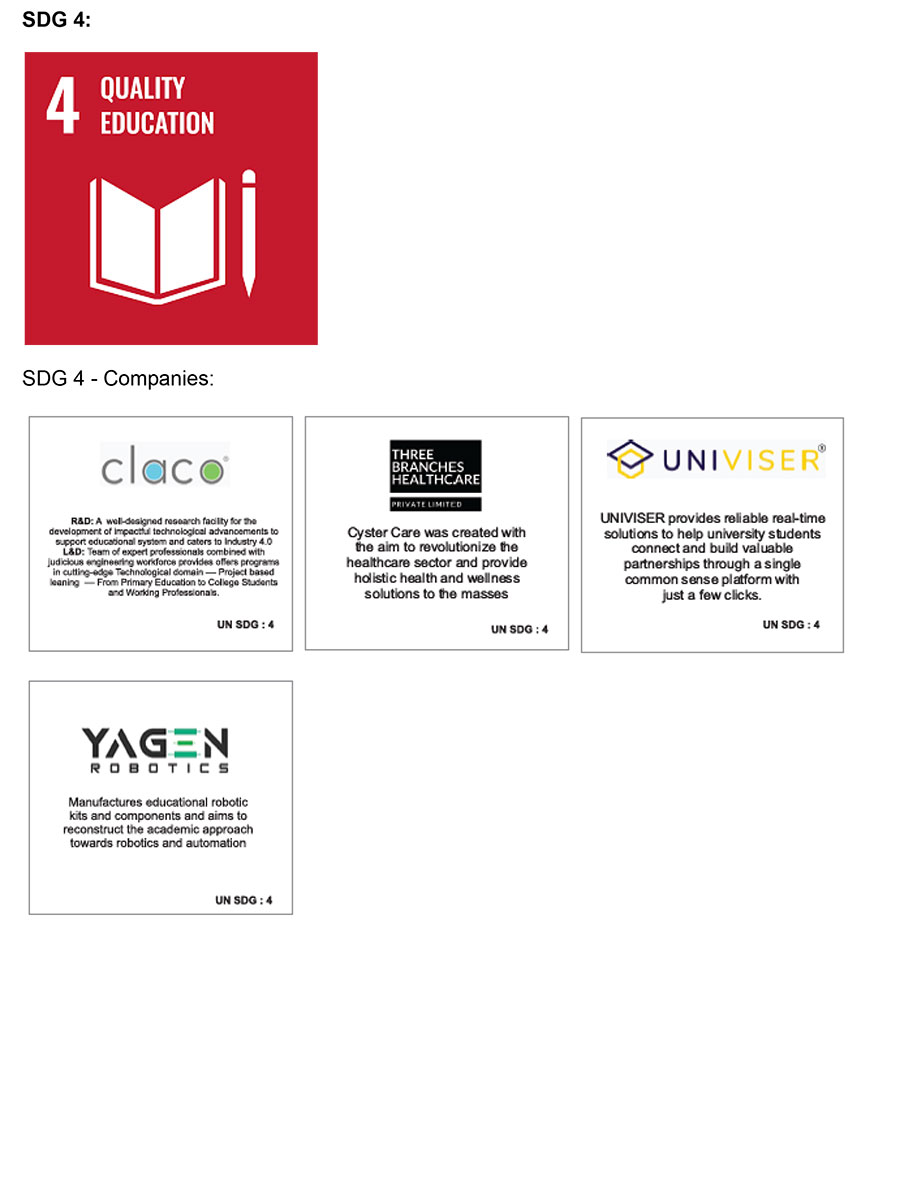
SDG 6
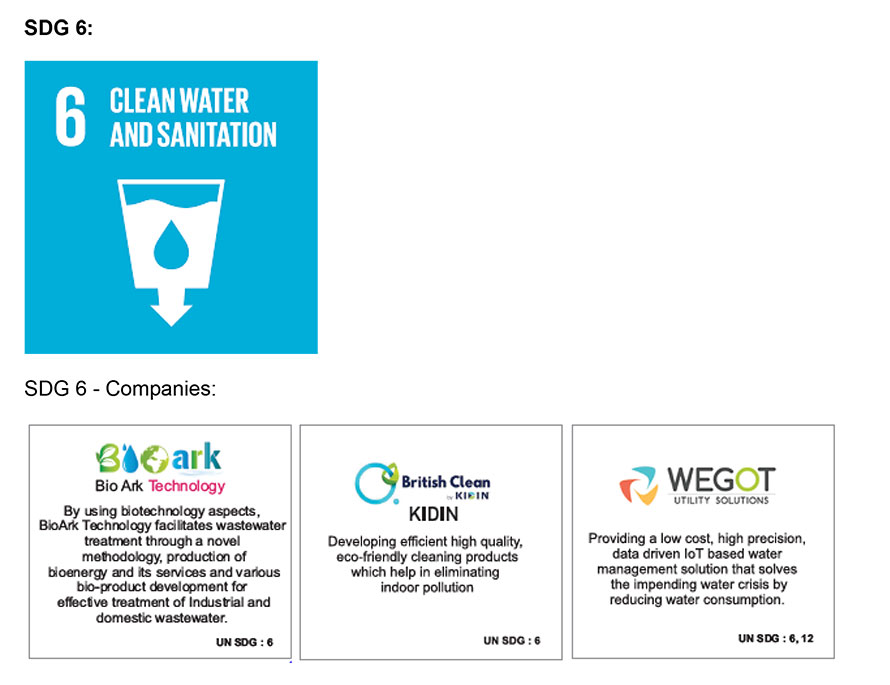
SDG 7
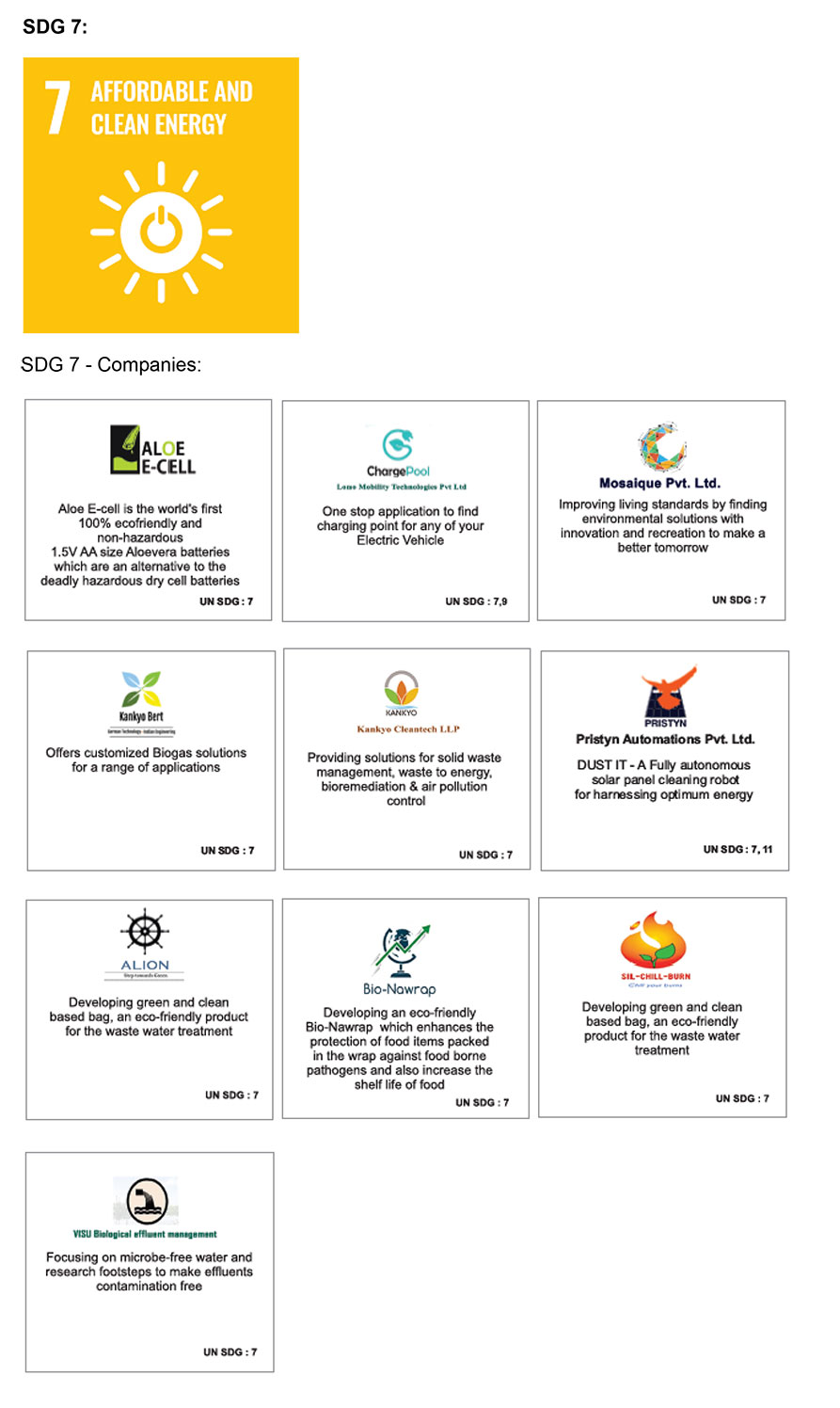
SDG 8
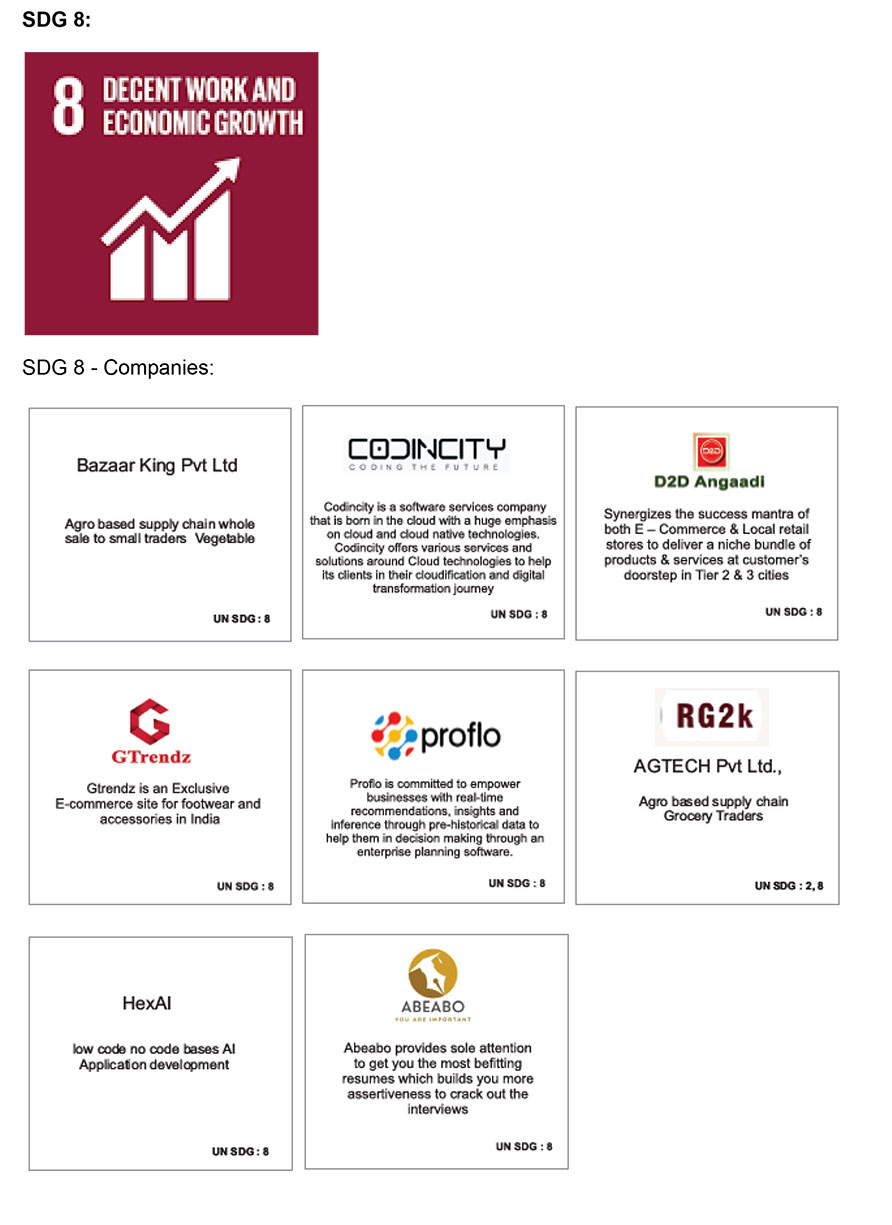
SDG 9
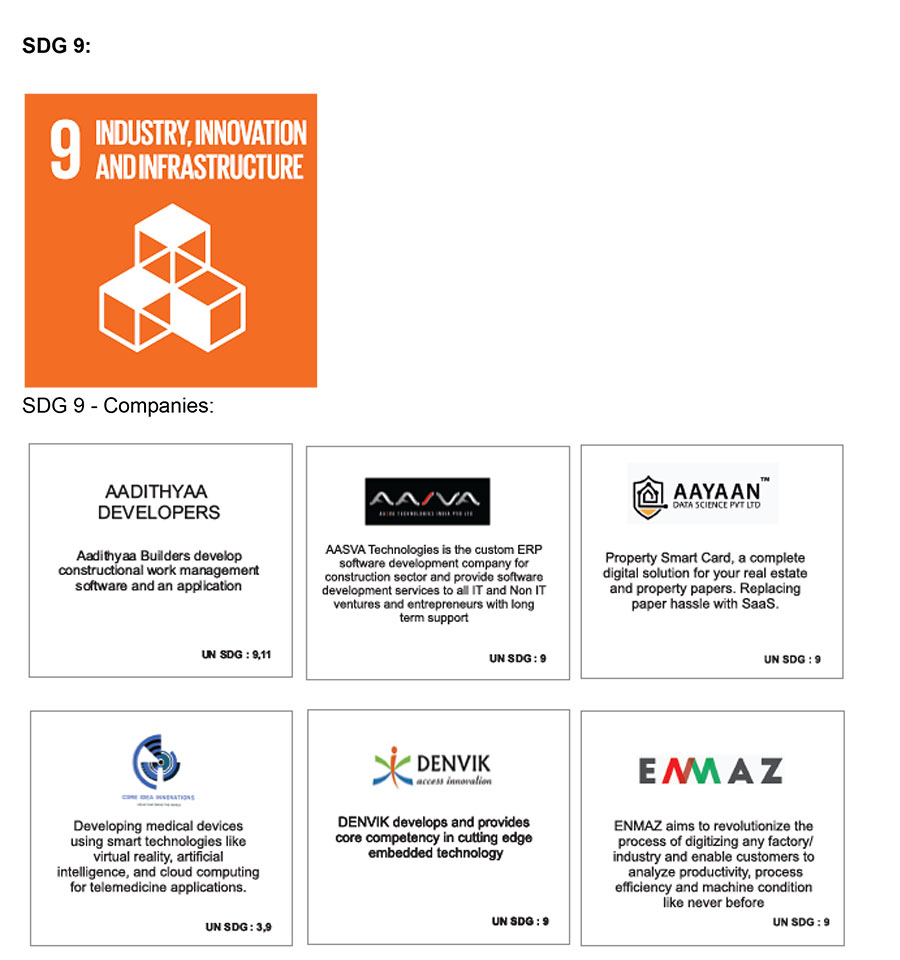
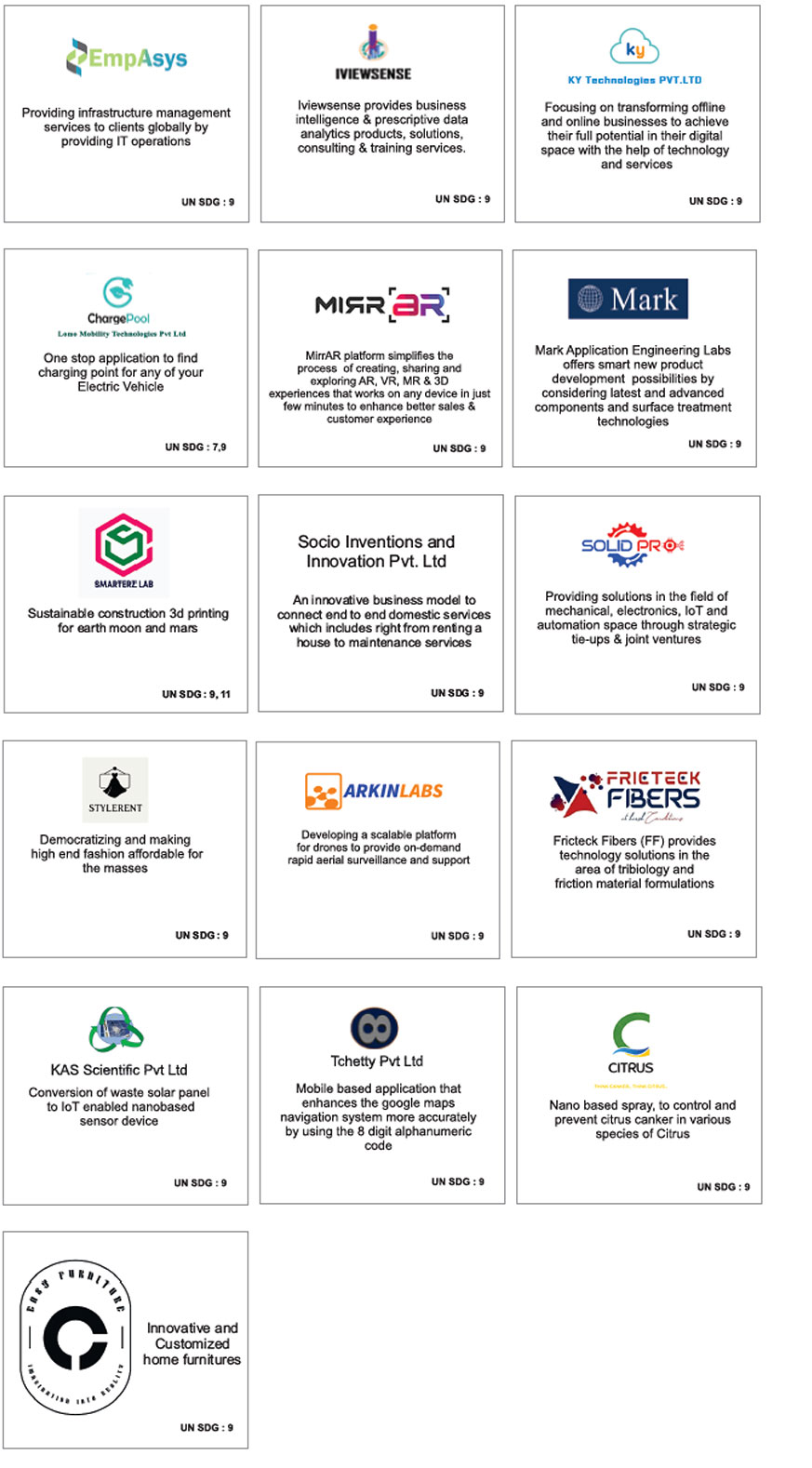
SDG 10
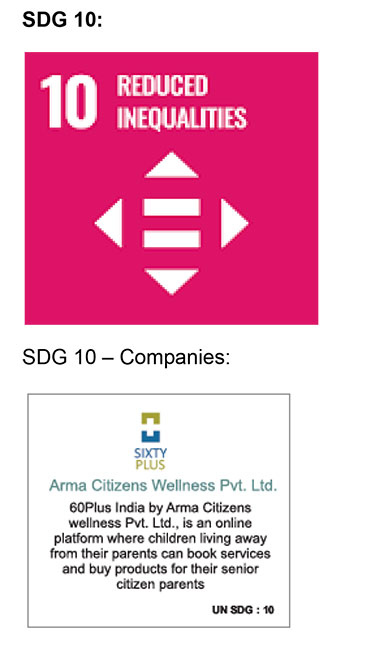
SDG 11
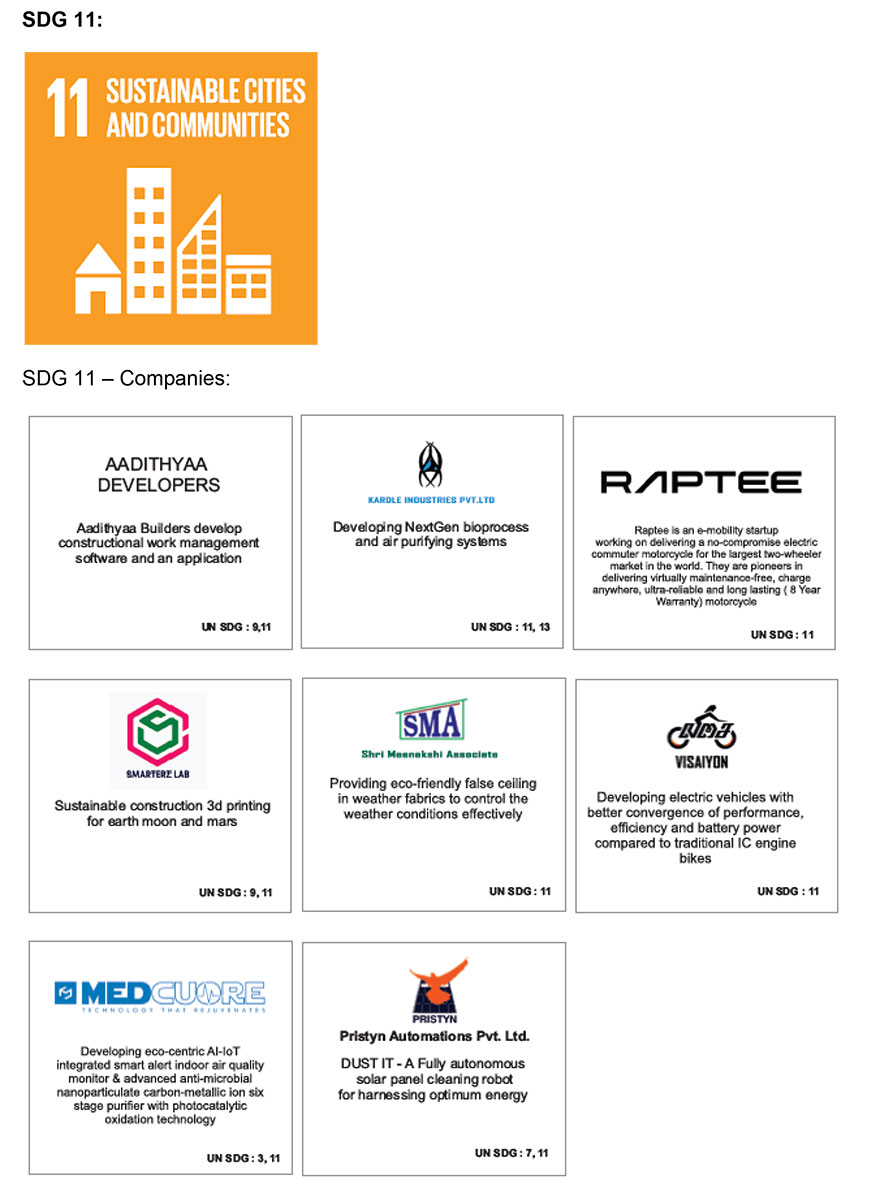
SDG 12
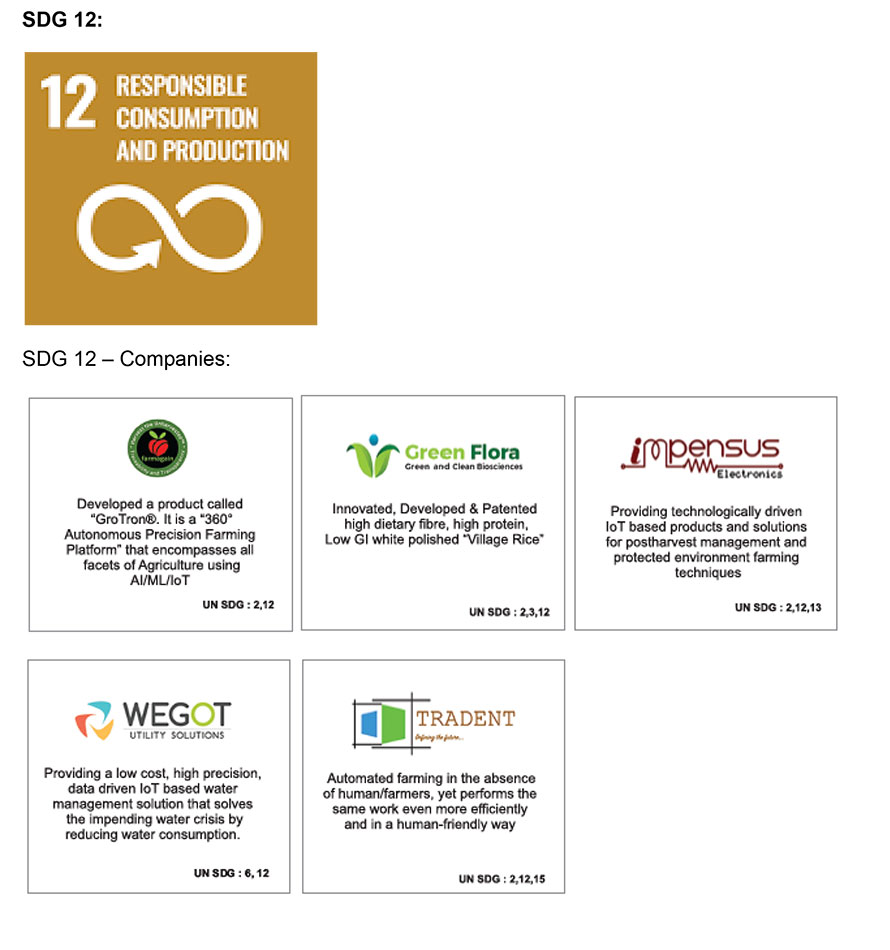
SDG 13
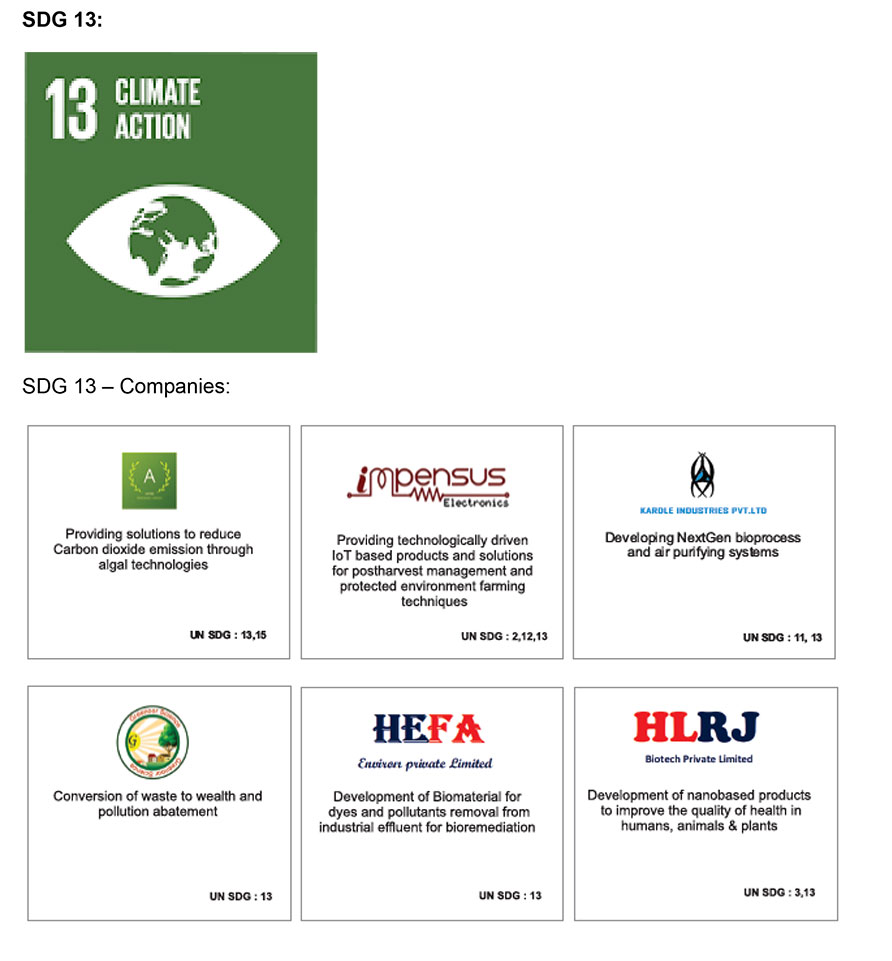
SDG 14
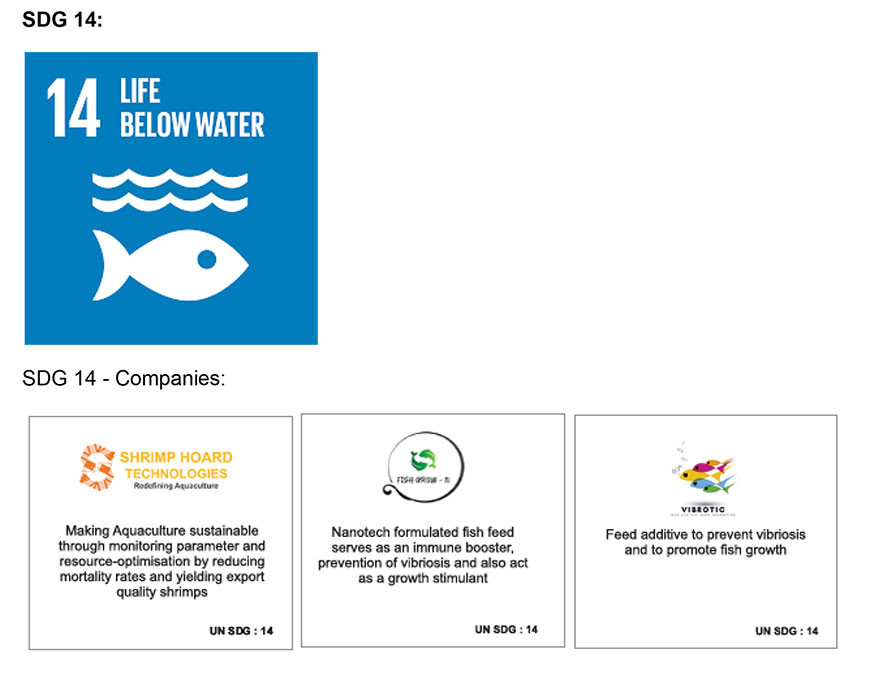
SDG 15

SDG 17
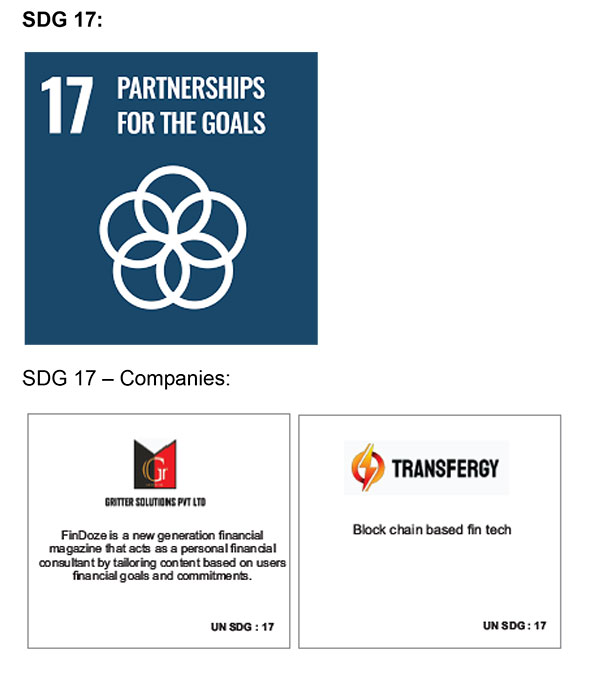
SDG Metrics & Indicators
- Good Health and Well-Being (SDG 3)
- Quality Education (SDG 4)
- Clean Water and Sanitation (SDG 6)
- Water Sources and Consumption Tracking
- Waste Water Treatment Process
- Preventing Water System Pollution
- Free Drinking Water
- Water – Conscious Building Standards
- Water Conscious Planting
- Water Reuse Policy
- Water Reuse Measurement
- Water Management Educational Opportunities
- Promoting Conscious Water Usage
- Off-campus Water Conservation Support
- Sustainable Water Extraction On Campus
- Co-operation on water security
- Affordable and Clean Energy (SDG 7)
- Policy & Standards – Energy efficient – New Building
- Upgrade buildings to higher energy efficiency
- Carbon reduction and emission reduction process
- Plan to reduce energy consumption
- Energy waste identification
- Divestment policy
- Energy Usage per Sqm
- Local community outreach
- Renewable energy pledge
- Energy efficiency services for industry
- Policy – clean energy technology
- Low – carbon innovation
- Industry, Innovation and Infrastructure (SDG 9)
- Partnerships for the Goals (SDG 17)
- Relationships with regional NGOs and government for SDG policy
- Cross sectoral dialogue about SDGs
- International collaboration data gathering for SDG
- Collaboration for SDG best practice
- Collaboration with NGOs for SDGs
- Publication of SDG reports
- Education for the SDGs Commitment to meaningful education
- Education for SDGs – Specific courses on sustainability
- Education for SDGs in the wider community
- Good Health and Well-Being (SDG 3)
- Quality Education (SDG 4)
- Clean Water and Sanitation (SDG 6)
- Water Sources and Consumption Tracking
- Waste Water Treatment Process
- Preventing Water System Pollution
- Free Drinking Water
- Water – Conscious Building Standards
- Water Conscious Planting
- Water Reuse Policy
- Water Reuse Measurement
- Water Management Educational Opportunities
- Promoting Conscious Water Usage
- Off-campus Water Conservation Support
- Sustainable Water Extraction On Campus
- Co-operation on water security
- Affordable and Clean Energy (SDG 7)
- Policy & Standards – Energy efficient – New Building
- Upgrade buildings to higher energy efficiency
- Carbon reduction and emission reduction process
- Plan to reduce energy consumption
- Energy waste identification
- Divestment policy
- Energy Usage per Sqm
- Local community outreach
- Renewable energy pledge
- Energy efficiency services for industry
- Policy – clean energy technology
- Low – carbon innovation
- Industry, Innovation and Infrastructure (SDG 9)
- Partnerships for the Goals (SDG 17)
- Relationships with regional NGOs and government for SDG policy
- Cross sectoral dialogue about SDGs
- International collaboration data gathering for SDG
- Collaboration for SDG best practice
- Collaboration with NGOs for SDGs
- Publication of SDG reports
- Education for the SDGs Commitment to meaningful education
- Education for SDGs – Specific courses on sustainability
- Education for SDGs in the wider community
SDGs Focused Statrtups (https://www.ciic.ventures/)
SDG Best Practice – Start-ups
B. S. Abdur Rahman Crescent Institute of Science and Technology possesses one of the top Incubators in India- Crescent Innovation and Incubation Council (CIIC). The CIIC houses 120 start-ups from different sectors, such as Life Sciences, Industry 4.0, and Smart mobility and transportation. The CIIC builds and nurtures our society by nudging entrepreneurs with Integrity, Sustainability, and a Culture of innovation, a Triple ‘M’ Strategy (Mentor, Money, and Market). The CIIC encourages Start-ups to provide the solution for the SDG problem. The Start-ups are as follows:












